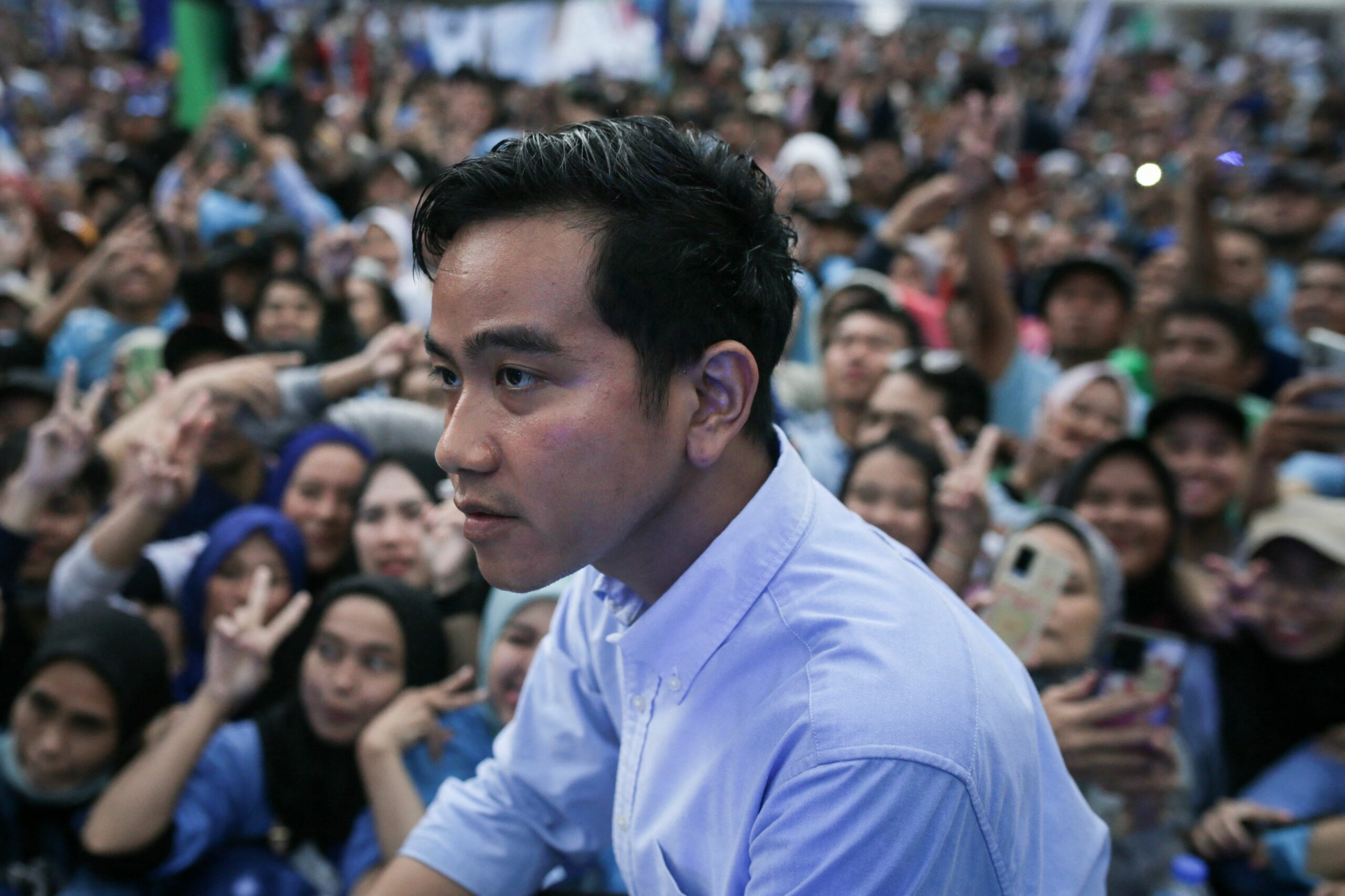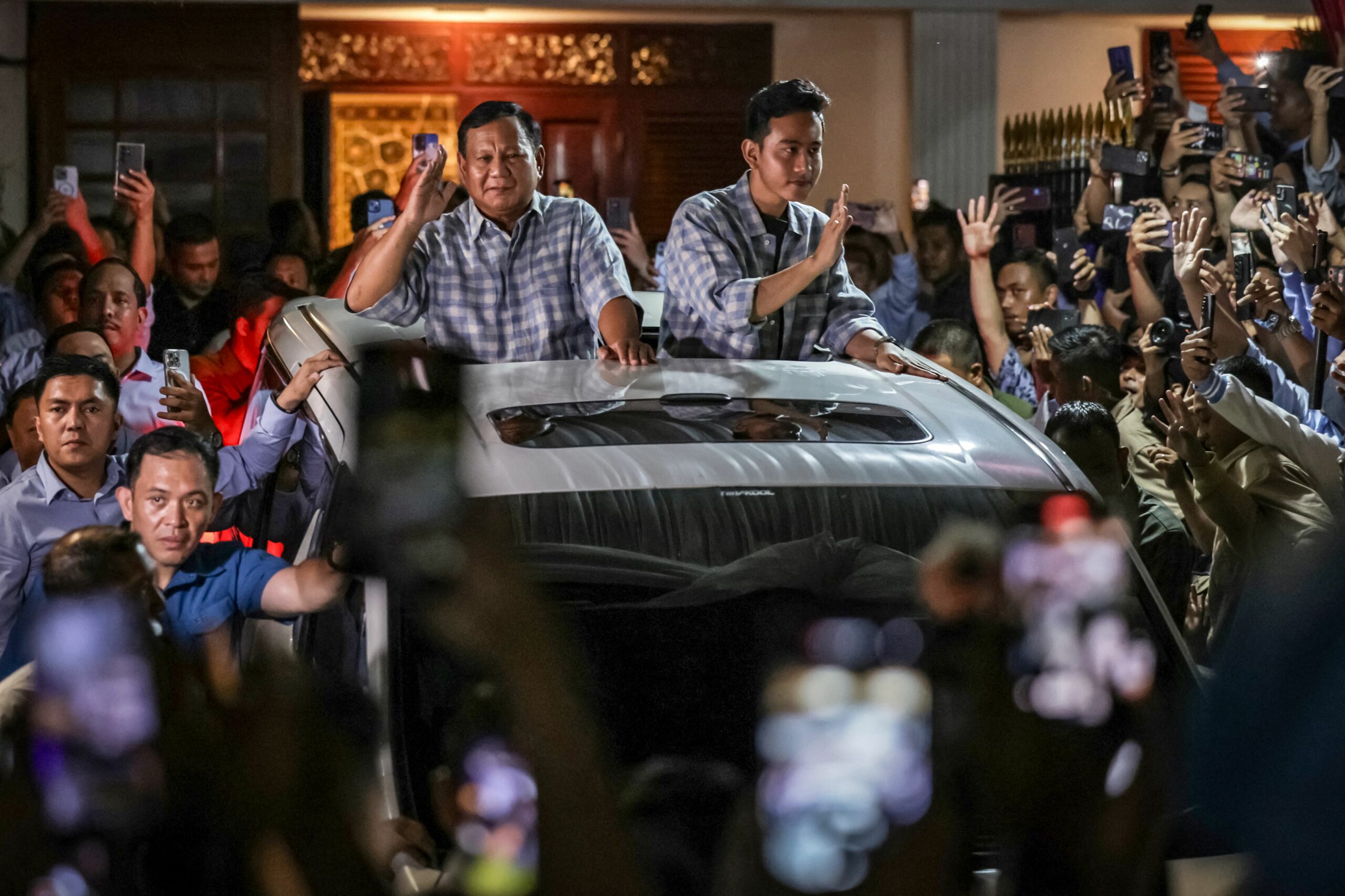Once a ‘nobody’, Jokowi’s son set to become Indonesia’s VP
JAKARTA (AFP) – By his own admission, Gibran Rakabuming Raka was a “nobody” a few months before Indonesia’s elections.
Now, the eldest son of President Joko Widodo looks set to become the country’s youngest-ever vice president.
Gibran’s meteoric rise to running mate of president-in-waiting Prabowo Subianto, who declared victory last week, was fuelled by his father’s wild popularity.
“Three months ago I was a nobody. I thank Sir Prabowo who has given room for young people like me,” Gibran, 36, told a packed arena in the capital Jakarta after polls closed on February 14.

“I believe these high figures were because of the young people.”
Official results show Defence Minister Prabowo’s ticket winning a majority with more than two-thirds of votes counted. The final result is due next month.
Gibran’s success in the polls has raised questions over the influence of Jokowi, as the president is popularly known, with critics accusing him of seeking to install a political dynasty before he leaves office.
Growing up Gibran was set to follow in his father’s furniture salesman footsteps after studying in Singapore and Australia, but he moved into catering and created a business selling traditional Indonesian dishes.
He first stepped into politics while his father was serving as president in 2021, winning the mayorship of Central Java’s Surakarta city — Jokowi’s old job.
Gibran ran on behalf of his father’s ruling Indonesian Democratic Party of Struggle (PDI-P) but later turned his back on it to run with Prabowo, an ex-general accused of atrocities under the rule of dictator Suharto in the late 1990s.
Jokowi, barred from a third term, leaves office in October, but the idea of another Widodo carrying on his policies has broad appeal in the country.
Indonesia enjoyed steady growth over his two terms and Jokowi is enjoying near-record approval ratings, so his tacit support strapped an election rocket to the Prabowo-Gibran ticket.
“When people see Gibran, they will see Jokowi,” said Ujang Komarudin, a political analyst from Jakarta-based Al Azhar University.
But “the big, strategic matters will be determined by Prabowo,” he added.
Gibran’s business and property investments made him a millionaire, according to a 2020 disclosure to the election commission, way above the wealth of most Indonesians.
Critics accuse him of lacking policy ideas and attempting to mask his shortcomings by demeaning opponents and brushing off questions with one-word answers or jokes that fail to hit the mark.
“As a VP he should be talking about policies,” said Ika Idris, political expert at Monash data and democracy research hub in Jakarta.
“From the way he communicates, he’s not mature enough.”
But in a country where more than half of around 204 million voters are Gen-Zers or millennials, some were attracted to the idea of Gibran representing young Indonesians in government.
“I’ve heard some good things about Gibran and I voted for him because he’s young, around our age,” said Ester Giay, 29, who works at a foreign diplomatic mission in Jakarta.
“I think, I hope, he’d be good since he’s gonna kinda represent younger people, or our generation.”
When Jokowi rose to power in 2014, he did so appealing to people as a political outsider from humble Javan beginnings.
But his critics say he and Gibran are acting like previous leaders in a country long known for its dynastic politics, who have installed relatives into powerful positions to retain their influence.
“I think it’s a combination of his personal desire and what his parents want,” said political analyst Ujang.
Jokowi’s brother-in-law, then-constitutional court chief justice, changed the rules in October that had barred candidates below the age of 40 from running for high office.
In the event that 72-year-old Prabowo steps down or is unable to carry out his duties, lawmakers and regional representatives would have three days to swear in Gibran and two months to choose his VP.

Observers believe the political princeling is likely already preparing for a presidential run in 2029.
“Once again who you know matters more than one’s merit,” said a staffer from a rival presidential campaign, on condition of anonymity.
“It shows that nepotism is back with a bang in Indonesia.”


